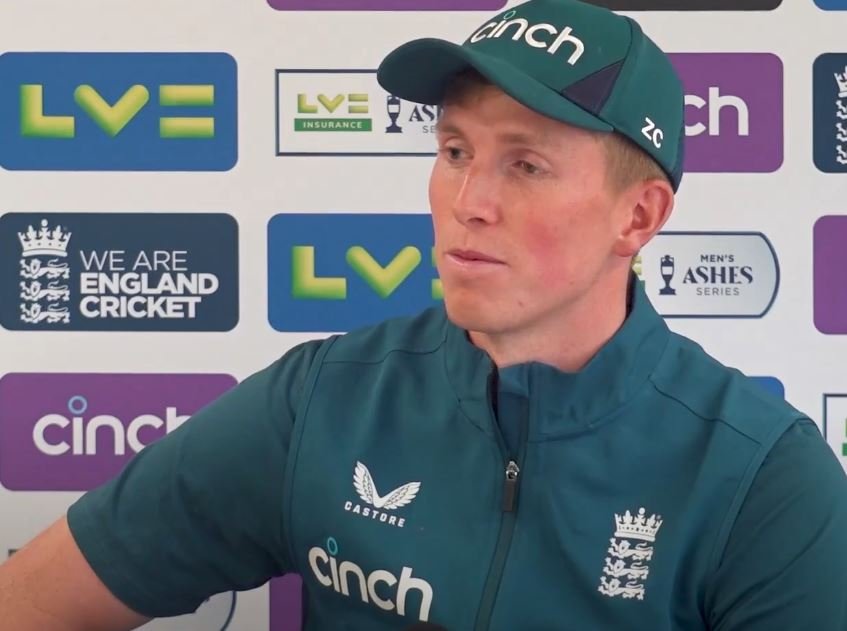
You have to look beyond the field to comprehend Zak Crawley’s audacity at the crease. He used to dominate futures trading with the same assertiveness that Zak now uses to hit a half-volley. Terry Crawley—famously referred to as “Terry the Till” by City traders—is not your average cricket father. He is a unique individual whose impact extends beyond scorecards and spreadsheets.
Terry used to make £100 a week laying carpets in Bermondsey, but his story took a remarkable turn for the better. He founded Crawley Futures, which peers later characterized as one of the most aggressive and unstoppable forces on the London Financial Futures Exchange, motivated by instinct and a desire for volatility. He made £23 million in a single year by 1999, which at the time put him just behind cultural heavyweights like Sting and Elton John in terms of earnings.
| Name | Terry Crawley |
|---|---|
| Profession | Financial Trader, Hedge Fund Founder |
| Nickname | “Terry the Till” |
| Former Job | Carpet Fitter |
| Breakout Success | Earned £23 million in 1999 |
| Estimated Net Worth | £8 million (approx.) |
| Known For | Father of England cricketer Zak Crawley |
| Role in Zak’s Career | Financial and personal supporter |
| Education Support | Funded private school and elite cricket coaching |
| Residence | Sevenoaks, Kent, England |
| Reference Link | https://en.wikipedia.org/wiki/Zak_Crawley |
Terry was incredibly successful in the trading arena and wasn’t merely a math whiz. In addition, he was deliberately influencing his son’s professional path. Terry’s success acted as a buffer and a boost in a nation where aspirations of becoming a cricket star frequently clash with financial limitations. Zak was attending Tonbridge School, batting at prestigious facilities, and being shaped by England’s cricketing infrastructure—exceptionally supported at every turn—while most teenagers struggled with distractions.
During his early years, Zak worked with Rob Key, who is currently the managing director of cricket for England. He frequently gives the Crawley family credit for their grounded yet intensely involved approach. Key once emphasized how important that presence becomes, especially when the pressure increases and doubts start to creep in, by saying, “Zak’s parents were always there, not pushing, just supporting.”
Despite being often invisible, financial privilege is unquestionably a potent asset. Parks were fenced off and gyms closed during the pandemic lockdown, severely limiting the number of young athletes. Under his father’s watchful eye, Zak was training in private at home. In many respects, his talent was developed via perseverance, passion, and strategically placed resources rather than emerging in a vacuum.
Terry’s risk-taking style—decisive, analytical, and bold—resonates clearly in Zak’s game. Zak’s thunderous 189 against Australia in 2023 made headlines for its impact as well as its audacity. In that innings, over 50 balls were mistimed—risky strokes that could have gone wrong. However, just like his father in the pit, Zak remained steadfast, interpreting the field as Terry used to interpret market sentiment.
Additionally, this parallel is not unique. In actuality, Terry’s confidence in manipulating financial volatility is remarkably similar to Zak’s cricketing temperament, which is patiently watchful but abruptly explosive. It’s not a coincidence. It’s an inherited way of thinking.
Notably, people close to the Crawley family describe a surprisingly reserved lifestyle, despite Terry’s earnings suggesting a man of flash and flamboyance. Terry has mostly stayed behind the scenes, in contrast to many self-made millionaires who seek out continual public validation. He is still remembered, however, in more subdued circles, from heated standoffs on the trading floor to late-night calls amid market turbulence.
But the Crawley wealth hasn’t just improved Zak’s standing in the industry. It has influenced how people talk about access and class in English cricket. England’s cricketing elite is still biased toward the privately educated, in contrast to places like India or the Caribbean where cricket thrives as a popular sport. The tale of Crawley emphasizes inequality as well as opportunity. His ascent may seem like a celebration of family loyalty, but it also serves as a reminder that financial support is frequently the source of athletic brilliance.
This was also not missed by social media. Fans immediately found articles about his father’s financial influence when Zak made his England debut. While some criticized the unequal access, others commended the Crawleys’ work ethic. But nobody questioned Zak’s ability. Selectors continued to believe in him despite his lean periods, possibly because they sensed that his ceiling was still very high.
Terry is still involved in finance outside of cricket, allegedly still making accurate trades and investments. Although his story is rarely featured in tabloids, insiders in the finance industry in London continue to describe his intuition as “almost mathematical.” It’s interesting to note that Terry reportedly enjoys golf much more now, particularly when he and Zak join football player Jamie Redknapp and his son Charley, fusing the traditions of finance, football, and cricket on lush greens.
Terry turned carpet and capital into opportunity through savvy parenting and a steadfast faith in measured risk. On the path to Lord’s, it meant one less obstacle for Zak.
There is no pressure or compelled ambition at the heart of this father-son story. Rather, it shows how generational advantage can be combined with discipline and humility to create a very powerful combination. Zak was prepared, mentored, and inspired; he wasn’t forced into greatness. And that foundation has shown itself to be not only supportive but remarkably resilient in the frequently chaotic, scrutinized world of English cricket.
Therefore, keep in mind that Zak Crawley’s straight bat is more than just hand-eye coordination when he steps out to open for England. It has a legacy of calculated risk, exact mentoring, and the silent power of preparation in addition to athletic passion. Terry Crawley’s greatest return is just beginning to emerge at the top of the order, despite earning £23 million in 1999.
